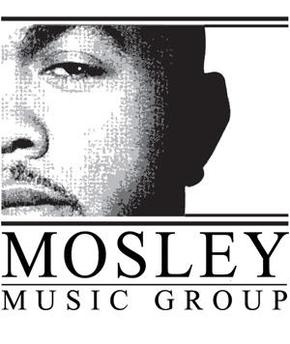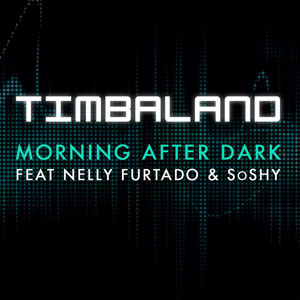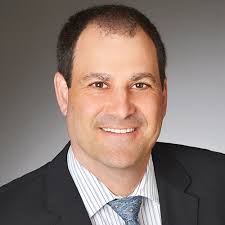
Nelly Kim Furtado is a Canadian singer and songwriter. She has sold over 45 million records, including 35 million in album sales worldwide, making her one of the most successful Canadian artists. Critics have noted Furtado's musical versatility and experimentation with genres.

The Assembly demoparty is an annual demoscene and gaming event in Finland. It is the biggest and the longest standing demoscene party. The Summer event takes place every year at Messukeskus in Helsinki, between late July and early August, and lasts three to four days. The 2020 edition was held online.

Timothy Zachery Mosley, known professionally as Timbaland, is an American record producer, rapper, and singer. Born and raised in Norfolk, Virginia, he has received widespread acclaim for his innovative production work and distinctive "stuttering" rhythmic style. In 2007, Entertainment Weekly stated that "just about every current pop trend can be traced back to him—from sultry, urban-edged R&B songstresses [...] to the art of incorporating avant-garde sounds into No. 1 hits."

Loose is the third studio album by Canadian singer-songwriter Nelly Furtado, released on 7 June 2006, by Geffen Records and Mosley Music Group. Recording sessions for Loose took place from 2005 to 2006. Timbaland and his protégé Danja produced the bulk of the album, primarily a pop album which incorporates influences of dance, R&B, hip hop, latin pop, synth-pop, reggaeton, new wave, funk, and Middle Eastern music. Lyrically, it explores the theme of female sexuality and has been described as introspective.

"No Hay Igual" is a song by Canadian singer-songwriter Nelly Furtado from her third studio album, Loose (2006). It was written and produced by Furtado, Tim "Timbaland" Mosley, Nate "Danja" Hills, and Nisan Stewart, with vocal production by Jim Beanz. While working with Timbaland and Danja at The Hit Factory in Miami, Florida, Pharrell Williams introduced Furtado to reggaeton, a musical genre that was unfamiliar to her. After he played a song for her, Furtado became inspired and wrote the lyrics to "No Hay Igual" "nearly on the spot". It is a hip-hop and reggaeton song in which Furtado sings in Spanish over a reggaeton rhythm.

"Maneater" is a song by Canadian singer Nelly Furtado from her third studio album, Loose (2006). The song was written by Furtado, Jim Beanz, and its producers Timbaland, and Danja. It was released to mainstream radio in the United States in July 2006. The song's musical style and production were inspired by the Hall & Oates song of the same name and other music from the 1980s.

"Say It Right" is a song by Canadian singer Nelly Furtado from her third studio album, Loose (2006). It was written by Furtado, Tim "Timbaland" Mosley, and Nate "Danja" Hills, with Furtado crediting the Eurythmics' song "Here Comes the Rain Again" as her inspiration. The song was released as the third single from Loose on 31 October 2006 by Geffen Records and Mosley Music Group; in Europe, it was released as the fourth.

Mosley Music Group (MMG) is a record label founded and formed by producer Timothy "Timbaland" Mosley in 2006. A successor to his previous label Beat Club, it has operated as an imprint of Def Jam Recordings since 2019. Previously, the label operated an imprint of Interscope Records (2006–2014) and Epic Records (2014–2019).

"All Good Things (Come to an End)" is a song by Canadian singer Nelly Furtado from her third studio album, Loose (2006). It was written by Furtado, Tim "Timbaland" Mosley, Chris Martin, and Nate "Danja" Hills. The song was released as the album's third European single in November 2006. It was released as the fourth single in the United States and Australia. The single features Chris Martin, frontman of the band Coldplay, harmonizing throughout the song. The original version of the song included Martin saying a few words at the beginning and singing the chorus behind Furtado.
Floyd Nathaniel Hills, known professionally as Danja, is an American record producer from Virginia Beach, Virginia. Beginning his career as a co-producer for fellow Virginian Timbaland, he has since produced for Britney Spears, Usher, Keri Hilson, T.I., Nelly Furtado, Ciara, Mariah Carey, Madonna, Whitney Houston, Missy Elliott, M.I.A., Justin Timberlake, JoJo, Joe Jonas, Simple Plan, the Clutch, Pink, T-Pain, Diddy, Meek Mill, Björk, Duran Duran and AGNEZ MO.

"Give It to Me" is a song performed by American producer, songwriter and rapper Timbaland, released as the first single from his second studio album Shock Value (2007). The song features vocals by Canadian singer-songwriter Nelly Furtado and American singer-songwriter Justin Timberlake. All three artists co-wrote the song together with American rapper Attitude and American producer Danja, who co-produced the song with Timbaland. Mosley Music Group, in association with Blackground Records and Interscope Records, serviced the song to contemporary hit and rhythmic radios in the United States on February 6, 2007, and later to urban radios on March 10, 2007. "Give It to Me" is an electro song that embodies the sensibilities of club music. The song features the protagonists addressing their critics about their successes in the music industry.

"Do It" is a song by Canadian singer Nelly Furtado from her third studio album, Loose (2006). It was written by Furtado, Danja, and Timbaland, and was also produced by Danja and Timbaland. The song is strongly influenced by 1980s dance music and features sexually suggestive lyrics, in which the song's protagonist asks a lover to satisfy her sexually.
Janne "Tempest" Suni is a Finnish demoscener, pixel artist and tracker musician, and a member of the demogroup Fairlight. He is best known outside the demoscene for being the creator of the song "Acidjazzed Evening", the melody of which hip-hop producer Timbaland plagiarized in the 2006 song "Do It" by Nelly Furtado.
"Ching Ching" is the second single by American rapper Ms. Jade. The song is also found on track four of her debut album, Girl Interrupted, released in 2002.
Fitts for Fight was a female duo consisting of Ellinor Aurora Aasgaard and Julie Ilona Balas from Kristiansand in Norway. They became known when it was revealed that the songs they claimed to have written themselves were made by demoscene musicians and downloaded from micromusic.net, while the two women added their own often explicit lyrics to the music. According to micromusic.net they have so far identified songs from 505 of YM Rockerz, Binärpilot, 8 Bit Weapon, Arachno, Printed Circuit, Yerzmyey, Drx of Bodenständig 2000, Jo Petrole and Stu of Drop da Bomb. After it was made public that they had copied the songs, Fitts for Fight deleted the music from their page on MySpace and they were removed from Urørt. Also the by:Larm festival dropped them from the programme and they were replaced by Binärpilot. Examples of music that Fitts for Fight stole are Fuck off and die that is actually STereoid by Stu, CrashBurnDestroy that is Space Travel by Yerzmyey, and Monstermachine that is Otosclerosis by Binärpilot.

"Morning After Dark" is a song by American record producer singer and rapper, Timbaland taken from his third studio album, Shock Value II. The song features French singer SoShy and was released as the first single from the album on October 26, 2009. The international version of the song features an additional verse from Canadian singer Nelly Furtado and it is this version which features on the album.

Shock Value II is the third studio album by American record producer Timbaland. It serves as the sequel to his previous album, Shock Value. Initially slated for a 2008 release, the project was pushed into 2009 and tentatively confirmed for November 23, 2009 through Blackground Records, however, it was pushed back once more and finally released on December 7, 2009 in the UK and December 8 in the US.

"Promiscuous" is a song by Canadian singer Nelly Furtado, featuring American record producer Timbaland, and written by Furtado, Timbaland, Timothy "Attitude" Clayton, and Nate "Danja" Hills. The song was included on the Furtado's third studio album, Loose (2006), and was released as the second single from the album on April 25, 2006. Its lyrics feature a conversation between a man and woman who call each other promiscuous.

Getaped.com, Inc. v. Cangemi is a 2002 case from the United States District Court for the Southern District of New York concerned with the issue of whether a copyrightable work made available over the internet could be considered published under the Copyright Act of 1976. Through analogy to traditional physical distribution, the court held that this indeed constituted publication.

Jeffrey D. Goldman is an American former entertainment lawyer, best known for his music litigation practice and for his involvement in two influential internet law cases: A&M Records v. Napster and Perfect 10 v. Google. His cases dramatically impacted the development of Internet law and on the music industry's transformation from physical sales to digital distribution of music. He was also part of the litigation team that represented the plaintiff victims in the O. J. Simpson civil case.














